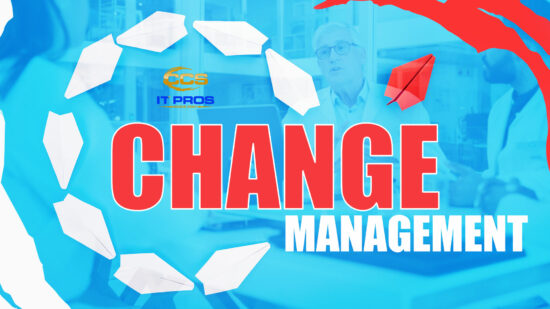Uncover the hidden complexities of tech sales in rural healthcare. [...]
We’ve Been Watching You Online And Have Videos Of You Scam
In our ever-connected digital world, we’ve recently become aware of an uptick in email scams that attempt to prey on privacy fears. Using alarming language, these emails claim to have recorded our private activities through our webcams and threaten to distribute the footage to our contacts. It’s important to understand that these messages are nothing more than a modern twist on classic intimidation tactics used by cybercriminals.
Notably, one of our colleagues shared that her situation involved more tangible data—a former password coupled with her email address was referenced in the scam email she received. After investigating, we learned the credentials were from a data breach and ended up on the dark web. This clarifies that these situations are often not targeted attacks but broad schemes leveraging previously leaked information. For peace of mind, we have measures such as changing passwords, enabling multi-factor authentication, and considering physical privacy protections like webcam covers.
Key Takeaways
- Email scams claiming to record you through your webcam are increasing and should be recognized as false intimidation.
- Authentic-looking details, such as old passwords, can appear in these emails due to past data breaches, not actual hacking.
- Protect yourself by changing passwords, using multi-factor authentication, and potentially covering your webcam when not in use.
Hear From Our
Happy Clients
Read Our Reviews

Recognizing Suspicious Emails
Typical Deceptive Strategies
When addressing suspicious emails, it’s essential to recognize the markers of deception frequently employed by scammers. Here are some strategies they commonly use:
- Threats of releasing sensitive information, often alleging they have recorded you via your computer.
- Claims of having personal data, such as passwords from long-compromised websites.
Immediate Actions:
- Be resolute in deleting such emails.
- In cases where familiar information is used, such as a former password, perform a swift password update.
Interacting with Potential Fraudulent Emails
If you’re uncertain about an email’s legitimacy and it’s causing concern:
- Contact your IT department or a cybersecurity expert, especially if this occurs within a corporate setting.
- Employ multi-factor authentication for an added layer of security against unauthorized access.
- Consider using physical safeguards like webcam covers to prevent unwanted recording.
*Remember:* – Change old or compromised passwords regularly. – Initiate protective measures even when slight doubts arise regarding email content.
Handling Threatening Scam Emails
Recently, our inboxes were flooded with emails claiming that our computer activities were being monitored and supposedly scandalous footage would be distributed to our contacts. These alarming messages are unequivocally fraudulent attempts to exploit fear. Our peers, too, have received such communications, raising concerns within our circle. It’s vital to understand that these emails remain deceitful even if one has engaged in regrettable online behavior.
While the immediate reaction might be of concern, especially when these emails include a former password or personal details, this does not necessarily indicate a breach of privacy on our end. A colleague shared their experience with us, where their email included an old password. We discovered their credentials were exposed due to a website breach, which was then made available on the less savory corners of the internet, also known as the dark web.
In handling these threatening scams, we advise the following steps:
- Immediate Action: Upon receiving such emails, promptly delete them.
- Verification: If there is any uncertainty about a breach, we encourage contacting IT professionals for an in-depth assessment.
- Security Enhancements:
- Change passwords regularly
- Implement multi-factor authentication for added security layers
Regarding concerns of unauthorized camera access:
- Webcam Covers: Available for purchase, these covers provide physical blocking of webcams when not in use, which can be slid open and closed at convenience.
Our commitment to cybersecurity is paramount. We’re here to support and guide businesses through potential digital threats. Remember, keeping calm and taking proactive security measures is key to protecting against these fraudulent schemes. Now, with these precautions in place, let’s continue to enjoy the digital world responsibly and securely.

Escalation in Scam Email Reports
Recently, it has come to our attention that fraudulent emails claiming unauthorized access to personal computers are frequently increasing. Our associates and clients have reported receiving threatening emails about potential exposure of their private activities online. It is important to understand that these messages are designed to exploit fear and are generally unfounded threats.
If you receive an email stating that you’ve been surveilled, we advise you to disregard it promptly. Moreover, our colleague encountered a more sophisticated form of this scam, where the email included a previously used password. This incident led us to investigate, revealing the password’s origin from a minor data breach, subsequently published on an obscure part of the internet known as the dark web. This discovery alleviates concerns about a direct compromise of personal computers and underscores the need for regular password updates and cybersecurity best practices.
To fortify your digital security:
- Change passwords frequently, especially if you suspect they’ve been compromised.
- Implement multi-factor authentication on all accounts.
- For added privacy, consider using physical webcam covers, which are readily available and user-friendly.
We encourage businesses to consult with their IT department or contact cybersecurity professionals if there is any suspicion of a legitimate breach. Ensuring the strength and security of your digital footprint is paramount. As for us, we’re committed to staying vigilant and will continue to enjoy the beauty of Hawaii while keeping our digital lives secure.
Examining Compromised Personal Data
Uncovering an Exposed Password
We investigated carefully after learning that a friend’s email and old password were in unauthorized hands. It was alarming to realize that these credentials were not secured due to her computer being infiltrated but because they were found on a less critical, yet still vulnerable, website that had been compromised. The credentials were leaking on the internet, specifically on a web part known for illicit activity.
Understanding the Illicit Internet Marketplace
The origin of our friend’s information leakage was traced to the dark web. To clarify, the dark web is a portion of the internet not indexed by conventional search engines and often harbors illegal activities. It is a marketplace for trading stolen data, and unfortunately, that’s where we discovered the breached data.
Steps to Take Following a Data Leak
We took immediate action after confirming that the incident was a data breach and not a direct cyber-attack. First, we advocated for a password update to reinforce the security of any potentially affected accounts. Implementing multi-factor authentication wherever possible was next, as this significantly decreases the risk of unauthorized access. For those with lingering concerns about privacy invasion via their webcams, we suggested investing in physical webcam covers, which provide a tangible barrier to potential spying. This small but effective tool is widely available for purchase online and can easily be used to cover and uncover a webcam as needed. Additionally, we extended our support to businesses needing assistance determining the legitimacy of alleged hacking incidents, helping them differentiate between actual threats and mere phishing attempts.
Strategic Measures for Personal Cyber Protection
Strengthening Password Security
We always emphasize the importance of maintaining robust password protocols. Here’s what we recommend:
- Use complex passwords: Combine letters, numbers, and symbols to create a more secure password.
- Update regularly: Change your passwords periodically to reduce the risk of unauthorized access.
- Avoid reuse: Refrain from using the same password across multiple accounts to limit the exposure in case of a breach.
Implementing Multi-Layer Verification
To enhance account security, we suggest enabling multi-layer verification measures:
- Enable multi-factor authentication (MFA): This requires a second form of identification beyond just a password.
- Diverse verification methods: Use biometrics, security tokens, or mobile confirmation as part of the authentication process.
- Regularly update access settings: Review and adjust your multi-factor settings to keep security tight.
Enhancing Webcam Privacy Measures
Considering potential privacy issues with webcams, we propose the following steps:
- Use physical covers: A simple sliding cover for your webcam ensures privacy when it’s not in use.
- Control app permissions: Regularly check and manage which applications have permission to access your webcam.
- Disconnect when possible: If your webcam is external, disconnect it when it’s unnecessary for additional security.
Reflective Concluding Thoughts
In light of recent developments, it’s imperative to address the concerns regarding the unsettling emails many of us received claiming unauthorized surveillance of our online activities. Recognizing these emails for what they truly are is essential—fraudulent attempts to incite fear and extract money.
Our experience echoes a common narrative where such alarming emails seem credible by including personal information like an old password, which can cause momentary concern. However, upon investigating, it’s revealed that these credentials were likely compromised through a security breach of an inconsequential website, with details subsequently surfacing on less savory parts of the internet.
We advocate for immediate action upon receipt of such dubious communications—not by responding to the threat but through precautionary measures to secure one’s digital presence. Updating to robust, unique passwords and implementing multi-factor authentication are steps we cannot emphasize enough.
As for the anxiety around being monitored through a webcam, practical solutions like affordable webcam covers offer a tangible sense of privacy and peace of mind.
Our role is paramount in assisting numerous businesses to discern between these phishing attempts and genuine security incidents. We continue to guide through these digital quagmires, ensuring the safety of our collective online environment.
Finally, despite these disruptors in our digital space, let us not be deterred. We will continue to pursue our enjoyment and productivity, whether in our professional lives or in restful locations like Hawaii.
Latest Blog Posts

Discover key strategies for successful IT implementation in rural [...]

Explore how digital transformation is revolutionizing rural hospitals [...]



